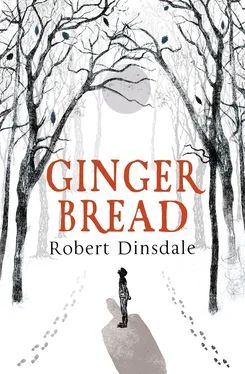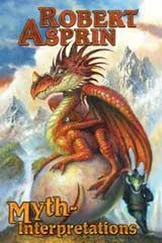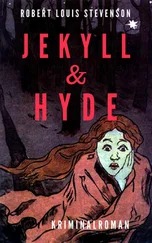If Grandfather is right, then the wilderness is baba – and soon the wilderness will be mama too. But, if it is really so, then there is nothing to fear in those long darknesses between the trees. It would be like in the story of Baba Yaga, and you would be kind to the branches and they would throw up walls of thorn to protect you from any bad thing in the world.
Then he remembers: there are other stories too, ones he does not know, ones it seems Grandfather will not tell. There are stories of this ruined house, and baba and mama. There are the stories scrawled along the tenement hall, of soldiers and kings and the wars of the long ago. And there is the tale mama never knew, of why, until this day, Grandfather has never returned to the forest and stopped telling his tales. Perhaps, in those fables, the forest is a wicked thing, and boys and girls would be better off staying in Baba Yaga’s hen feet hut than running desperately for their papa through the chestnuts and pines.
Grandfather’s shape hunches through the door and along the narrow kitchen. Beyond him, the fire burns strong. The old man steps into the light, rounds the corner – and then, for a moment, though the boy can still hear the familiar click of his jackboot heels, he is gone. As the footfalls fade, the boy finds himself torn between mama’s tree and the echo of Grandfather’s jackboots. By the time he scrabbles back into the ruin, Grandfather is hunched over the fire, fingers splayed to drink in its warmth.
He joins him, feeling the lap of the flames. ‘Mama must have liked it, papa, to want to come back here.’
‘I suppose she liked it well enough.’
‘So why didn’t you live here? Why did you live in the tenement?’
‘Stories, stories,’ mutters Grandfather. ‘Haven’t you had enough excitement for one night?’
As the flames flurry up, Grandfather brings a piece of crumpled newspaper out of his greatcoat pocket. When he sets it down, the scrunched-up paper slackens and unfurls. There, in the light of the fire, the boy sees the nine remaining hunks of mama’s gingerbread.
‘Can I?’
‘Of course.’
The boy reaches out and takes one of the hunks.
‘I’ll want a corner.’
‘You can have a whole one, papa.’
Grandfather closes the newspaper bundle. ‘No,’ he says. ‘They have to last.’
He turns the gingerbread over in his mouth, until it is wet and sticky and stuck in the crannies between his teeth.
After some time, the flames lose their strength. In the hearth’s heart, the branches glow orange, but fire no longer licks up the chimneybreast, and the hiss and crackle has ebbed away. It does not matter, for the heat still radiates out. The boy curls in his eiderdown, and skims the surface of sleep, always the thought of mama hovering near, the reassuring presence of Grandfather, just beyond the line of his vision.
He must fall asleep, because the next thing he feels are bony fingers in his hair. He does not start. The heat has lulled him, and he opens his eyes to feel Grandfather near.
‘Are you ready, boy?’
‘Ready, papa?’
‘To go back to the tenement.’
The boy hurtles up. ‘Please, papa. We haven’t …’
‘I can’t stay here, boy. Not in the forest.’
‘But why not in the forest?’
‘ Why doesn’t matter,’ breathes Grandfather. ‘Stop asking why. Why, why, why ! I already kept my promise, boy. I did what I told her I’d do. Your mama loves this place. She’s fine out …’
A shrill cry, one to pierce every room in the ruin: ‘She isn’t fine, papa! She’s dead.’
If there was another anger bubbling out of Grandfather, the boy has shocked it back into place. Now he stands, merely numb.
‘She’ll be fine, boy. She doesn’t feel the cold, not where she is. She isn’t alone. She has …’ He seems to hold himself, weighing up the words. ‘… all of the trees.’
‘Papa, just a little more.’
Grandfather lifts his hands, as if in submission.
‘Maybe you can tell us a story, papa? One for me and for mama.’
Grandfather says, ‘Something to help the long night pass …’
‘One more story, and then we can go.’
Grandfather breaks from whatever dream was holding him. ‘I have a story,’ he says, taking in the timbers and stones, the pools of orange and pools of black. ‘But settle down, boy, for this tale is too long in the telling.’
The boy nods.
This isn’t the tale , says Grandfather, but an opening. The tale comes tomorrow, after the meal, when we are filled with soft bread.
On hearing the familiar words, the tension rushes out of the boy. He wriggles back into the eiderdown, bathed by the dying fire. Up close, Grandfather wraps his arms around his legs.
And now , he whispers, we start our tale. Long, long ago, when we did not exist, when perhaps our great-grandfathers were not in the world, in a land not so very far away, on the earth in front of the sky, on a plain place like on a wether, seven versts aside, came the war to end all wars.
Now, war, as we know, is a most terrible thing. For a long time, war had been talked of between kings and in courts, but in the little town where our story begins, war was a faraway thing, fought by champions and knights, and not for the grocers and farmers and carpenters who lived in the town, kind and careful, without any thought for killing.
Yet, war … war changes everything. In the east, there was a great emperor, the Winter King, who lived in his Winter Palace and ruled his empire with an iron fist. And, in the west, there was a clever man, a calculating king who had fought in wars before, and been locked away, and risen to rule with a party of fierce companions, who all hated each other but hated others most of all. And, caught between these two evil kings, soon there was whispering in our little town that war … war itself would seek them out.
The boy is rapt. It is, he decides, unlike the stories of before, those of Baba Yaga, of Dimian the peasant, of the Little Briar Rose. There is wickedness in those stories, but there are certainly no wars.
But, before we find ourselves at war this night , Grandfather goes on, this is not a story of the war, not of the evil Winter King, nor the calculating King in the West. This is the story of a little boy, much the same as you, and the stories he heard of the ghosts in the woods …
That little boy was smaller than you when the kings made war. He was four or he was five, and he lived, like you, in a town on the edge of the forest. And do you know how big the forest was?
‘The woods are wide and the woods are wild, and the woods are the world forever and ever,’ whispers the boy, as if repeating an ancient rite.
For a little while, the wars of the Winter King were only stories to that little boy. For him the world was only his house and the streets and the finger of forest that cut into his town. It was many months before the war found him, but when it found him it changed his world.
For the King in the West had broken a promise, and turned against the Winter King, who he had sworn was his friend. Angry as the end of all things, the Winter King rushed to meet the King in the West in pitched battle, and in the morning, when the boy awoke, his streets were filled with tanks and soldiers and new sounds, and languages he could not understand. He watched from his window and saw soldiers a-marching, and he knew they were a different kind of man to his papa and brothers. These were men raised in a world where they had never before known the sun, or the summer. They were soldiers from winter itself.
And so it happened that the town changed. His papa became a clerk, working for those same soldiers who took his grain and commandeered his horse and took their pigs off for slaughter. He kept their stores and wrote in a ledger book every time they ate the sausages that should have been his. Some of the men in town hated his papa for serving the soldiers, and perhaps he even hated his papa little bit too.
Читать дальше












